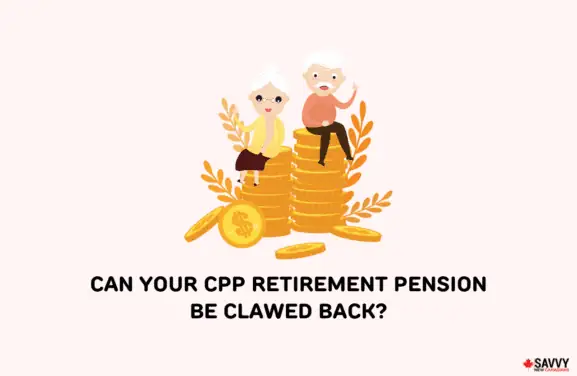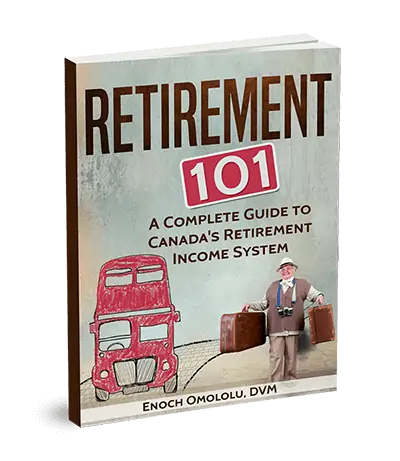Key Takeaways
- The maximum monthly CPP payment increased by 4.4% from $1,306.57 in 2023 to $1,364.60 in 2024.
- OAS payments will remain the same for the April to June 2024 quarter at $713.34 (age 65-74) and $784.67 (age 75 and over).
- OAS benefits are revised quarterly in January, April, July and October to adjust for increases in the cost of living.
Canada Pension Plan (CPP) and Old Age Security (OAS) benefits are adjusted yearly to reflect changes in the cost of living or inflation.
Also referred to as the Consumer Price Index (CPI), the government increases pension benefits when the cost of living increases.
How much will CPP and OAS increase in 2024? We cover this in detail below.
How Much CPP Increased in 2024
CPP payments have increased by 4.4% in 2024 compared to 2023. This increase is much higher than we have seen in recent years and is due to a significant rise in inflation over the last 12 months.
CPP benefits are adjusted once a year in January.
For 2023, the increase was calculated using the percentage change in average CPI between November 2022 to October 2023 and November 2021 to October 2022.
The average of 156.3 divided by 149.7 results in a rate increase of 4.4%.
What is the CPP Amount in 2024?
Since the average CPI rate increase is 4.4%, the maximum monthly CPP payment in 2024 increased to $1,364.60, compared to $1,306.57 in 2023.
Most seniors get less than the maximum CPP because how much you receive is determined by:
- The age you start collecting your pension
- How much you contributed, and for how long
- Your average earnings while working
The average monthly CPP payment in 2024 is $758.32.
Related: CPP Payment Dates.
Here’s How Much OAS Increased in 2024
OAS payments are not changing for the April to June 2024 quarter. Unlike CPP, OAS benefits are adjusted for cost of living increases in January, April, July, and October (quarterly).
To calculate the current 2024 increase in OAS, CPI numbers for two periods of 3 months each are used.
For example, for the January to March 2024 quarter, the difference between the average CPI for August-October 2023 and May-July 2023 equals 0.5% ((158.6-157.4)/157.4)).
For the April to June 2024 quarter, CPI decreased, and payments will stay the same.
What is the OAS Amount in 2024?
With CPI up by 0.8% in the first quarter, monthly OAS payments increased to a maximum of $713.34 (age 65-74) and $784.67 (age 75 and over), respectively, for January to March 2024.
They remain unchanged for April to June.
Other OAS benefits, including the Guaranteed Income Supplement (GIS), the Allowance, and the Allowance for the Survivor, also increased in 2024.
How much OAS you qualify for depends on how long you have lived in Canada after turning 18. There is also a cap imposed by your taxable income. Income above a threshold amount could result in OAS clawback.
OAS Increase for Seniors Over 75
Seniors aged 75 or older as of July 2022 saw an automatic 10% permanent increase in benefits. This increase will continue in 2024.
The current monthly maximum OAS amount of $713.34 for those aged 65 to 74 is 9% less than the $784.67 maximum for seniors over 75.
Will OAS and CPP Increase Again in 2024?
We have already seen the only CPP increase that will occur in 2024.
While the average amount paid to new beneficiaries will fluctuate, the maximum CPP this year will remain at $1,364.60.
OAS benefits will likely increase during the following quarters:
- April – June 2024
- July – September 2024
- October – December 2024
If the CPI indexing rate drops, monthly payments stay the same and do not decrease.
Other Ways to Increase CPP and OAS
You can increase CPP by collecting at a later age, up to age 70, for up to a 42% permanent increase.
This same strategy works for the OAS. Seniors can delay collecting OAS for up to 5 years for up to a 36% increase.
Frequently Asked Questions
Yes, seniors got a 4.4% increase in CPP payments and a 0.80% increase in OAS payments from 2023.
To receive OAS, you must have lived in Canada as an adult. The maximum OAS benefit is paid to seniors who have lived in Canada for at least 40 years since the age of 18.
No, OAS benefits can only start when you turn 65.
The CPP pension indexing rate in 2024 is 4.4%.
OAS is indexed to inflation every quarter in January, April, July and October.
The federal pension indexing rate in 2024 is 4.8%.






not sufficient pension increase given the rate of inflation, especially in regard to food, heating, and increase in health coverage not covered by Provincial plans.
I worked all my life, brought three children into the world, well-educated them, and they pay their fair share of income tax through their jobs.
I never got a private pension because I chose to work for a non-profit organization at a time when there were no benefits attached, including health. I worked with vulnerable children and fought valiantly with all levels of government for any scraps of help for their families with all levels of government. RETROSPECTively, I wish I had taken my two degrees and obtained a job such as a Government job, with lots of benefits, long holidays, more respect, paid better all around, and with a healthy pension at the end.
I totally agree with you. I even paid for the university of my daughter (I should have told her to get a loan).
That’s really too bad and I respect you for your career path and your giving heart. Yes, at times I too choose not to have a high paying govvernment job with so many holidays, vacation days, sick days, a crazy amount of paid personal days, a fully insane benefits plan including through the roof medical and dental coverage and top it all off with a more than generous pension.
The problem is not Government jobs. Same situation in all developed countries. The problem is with people who hadn’t contributed a penny during their lives and their pensions either on par or higher than for those who had worked all their lives and paid taxes. No other country has such unfair system. And one is also penalized by taking away OAS if you have more than certain amount. Unbelievable!!
House wives and mothers may have contributed by raising children – especially difficult if you are raising a disabled child who requires substantial and continuous assistance. Disabled people may not have been able to contribute because of their disability. OAS is meant to ensure those who could not contribute financially during their younger years don’t starve to death in their old age. I don’t find that ‘unbelievable’ at all. They don’t get much – not generally enough to even cover rent in today’s rental markets – and that amount comes out of general revenue, it is not a pension, strictly speaking. It is a society trying to make sure that the poorest don’t die. You begrudge them life?
For the life of me I can’t understand why the government finds it necessary to tax OAS!